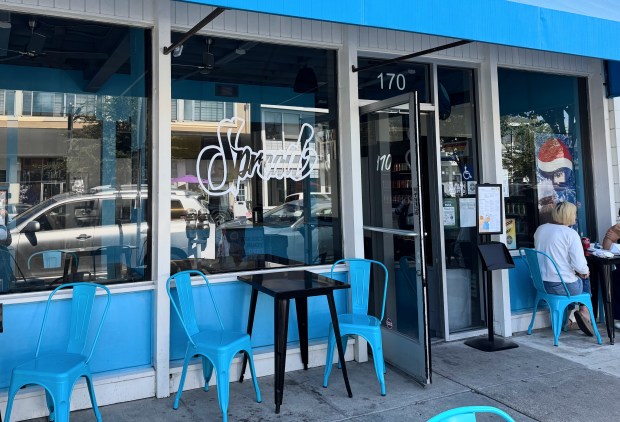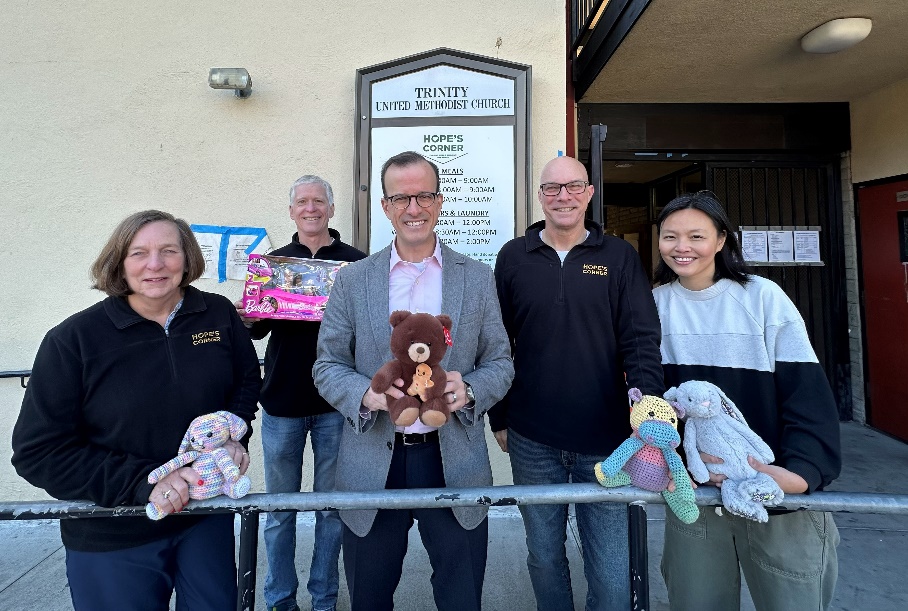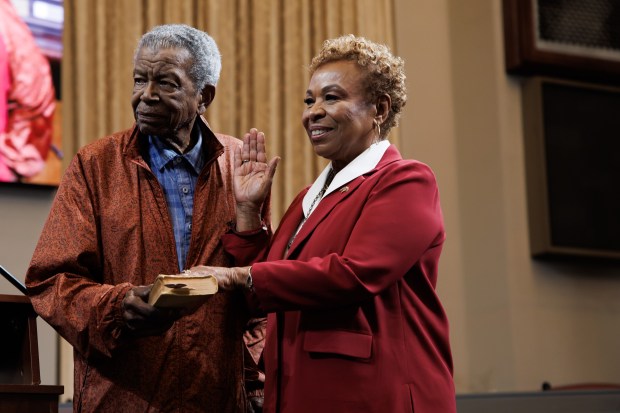Jordan Trigg concedes he and his wife, Rina, should have seen the financial tidal wave caused by an ambitious expansion plan building in the distance. But by the time it started crashing over the couple — who owned four businesses in San Jose’s historic Japantown district — it was too late to do anything but try to survive, he said.
“We made some bad decisions. We could have made some better ones,” Jordan Trigg said Friday, two days after he closed Jtown Pizza Co., a vibrant eatery that had been in business for six years on North Sixth Street. On Friday night, his company, Dipsomania Inc., announced that another of its Japantown businesses, Spread Deli, would shut down after the close of business Sunday.

Trigg says he’s doing everything he can to keep the doors open at the other two — Jack’s Bar, which he’s owned for nearly 20 years, and the legendary 7 Bamboo karaoke lounge — as well as save his heavily-leveraged family house in Japantown.
They’re getting a significant boost thanks to a GoFundMe campaign set up — without his knowledge, Trigg said– by former San Jose City Councilmember Raul Peralez. They’ve known each other since Peralez was first campaigning in 2013 and their 6-year-old children go to the same school. As of Friday afternoon, the fundraiser had brought in just over $50,000.
I suggested to Trigg that the outpouring of support was reminiscent of the end of “It’s a Wonderful Life,” when the residents of Bedford Falls show up to save George Bailey in his time of need. He clearly was not comfortable with the comparison, but he could see where I was coming from.
“We knew people liked our business, but we didn’t realize how much,” Trigg said. “All the news and the crazy amount of text messages and phone calls that Rina and I have received have been amazing. And a lot of it is from people we don’t even know who are saddened and upset.”

The Triggs’ dream-turned-nightmare goes back to 2022, when the couple took the ambitious risk of buying three parcels on East Taylor Street next door to Jack’s Bar. The family that owned Mexican restaurant Cielito Lindo was looking to get out of the business, and Trigg saw an opportunity to buy the eatery and its valuable liquor license while also purchasing the land beneath it. They intended to renovate the aging structure into a mixed-used building with a ground-floor breakfast spot called Jill’s.
They received a city permit to tear out the interior of Cielito Lindo and then worked with an architect on drawings for the new space. And that’s where they hit a major snag: The building was listed as a “contributing structure” on San Jose’s Historic Resources Inventory, which tied up its permits and put restrictions on potential remodels. There were also issues with an overlapping property line, apparently okayed in the 1970s but not allowed now.
They couldn’t get construction loans, and with the interior demolished and with no way to rebuild, they couldn’t even rent the space. The idle buildings were costing them tens of thousands of dollars every month. “During this whole time we’re still being optimistic,” Trigg said. “Finally a few months ago, all the finances and stuff started catching up. We should have seen the writing on the wall.”
Trigg says he wasn’t notified of the historic status of 195 E. Taylor St. during the real estate transaction — and the standard transfer disclosure form for California doesn’t specifically call that out.
“We probably never would have bought the buildings if we had known in advance,” Trigg said, adding that he has since learned there are about 120 such properties on the city’s Historic Resources Inventory in Japantown alone. He believes that designation is a major factor in why some buildings in the district have remained vacant and expects they won’t be developed for years.
In the 1950s and ’60s, the building at 195 E. Taylor St. was Onishi Hall, a banquet room used for weddings, dances and other community gatherings. It was later the Fog Horn restaurant, a Mexican restaurant called And Chili and then Cielito Lindo. A “contributing structure” is so designated because it adds to the historic nature of an area, but that’s a hard argument to make in the case of 195 E. Taylor, which had been showing its age long before the Triggs bought it.
San Jose City Councilmember Anthony Tordillos, whose district includes Japantown, said he sympathizes with the Triggs’ plight but believes the city did everything by the book. While he says it’s too soon to say if any city policies should change because of this situation, he does think it’s important for the city to make sure property owners are aware of their buildings’ historic status early in the pre-approval phase of renovations.
“The other side of this I’m looking at is that there are elements where we could have more flexibility when it comes to adaptive reuse of historic properties,” said Tordillos, who lives with his husband in a historic home and has had to deal with renovation red tape himself.
Japantown, Tordillos said, is one of the most vibrant corridors in the city thanks to the high-quality businesses and restaurants there — for now.
“Once you start to lose those businesses, it starts to break up that urban fabric,” he said. “And because the Trigg family has invested so much in Japantown over the years, they’ve become a staple of the community, so it makes it even more difficult.”
Tamiko Rast, whose family owns the popular Roy’s Station coffee shop on the corner of Fifth and Jackson streets, agreed that the business closings would have a deep impact on the neighborhood, one of three remaining Japantowns in the United States.
“The loss of Jtown Pizza, Spread and any of the Dipsomania businesses leaves a gaping hole in our neighborhood,” she said. “Our collective community is devastated not only for the businesses and staff, but for the Trigg family.”
Jordan Trigg said the impact his situation has had on his employees weighs on him. “We’re the largest independent employer in Japantown — a lot of our employees walk or ride their bike to work — and we let them down,” he said.
But he hasn’t given up on keeping some of his business alive and still has faith in San Jose and Japantown.
“We still have fight left in us, and we’re still trying to right the ship,” Trigg said. “I don’t know how it’s going to turn out, but day by day we’re trying to save our livelihood and 20-plus years of being in Japantown.”




